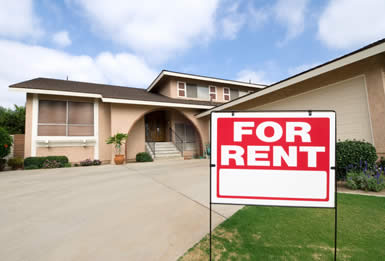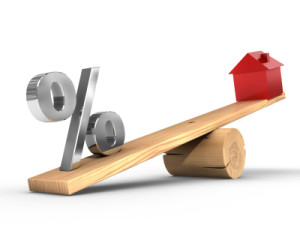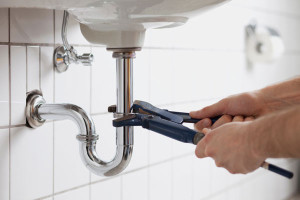National Records Office provides necessary information to prospective homebuyers. In response to a recent article on NationalRecordsOffice.com, the company spotlights some of the benefits to buying a home as opposed to renting. The decision comes down to what is right for each person, but each side has its advantages and disadvantages.
The article focuses on two major considerations: time and money. Stacy Johnson, founder of Money Talks News, discusses the finer points of each. Johnson says that owning a home is more beneficial overall if the homeowner is looking to stay at least five years. Renting a home saves time and expenses. When something breaks, the landlord is responsible for repairs. Homeowners are responsible for their own upkeep and repair. They must repair it themselves or find someone else to do the work and this can become costly.
On the plus side to ownership, homebuyers can renovate as they please. The only restrictions are imagination, budget, and local zoning laws. Renters are generally very limited in what they are allowed to change. For people who enjoy moving from place to place, renting is a good option. It is also preferable for those who don't want the burden of home repairs. But for someone who wants to create the home of their dreams, buying is probably the best choice.
Next, Johnson focuses on the money involved. Rentals often require first month's rent, a security deposit, and maybe a pet deposit up front. For a rental that costs $750 a month, the total cost would come in under $2,000. Buyers, on the other hand, are responsible for a down payment, closing costs, and other fees. These exceed the cost of rent substantially. Johnson estimates that for a house worth $185,000, the owner will spend nearly $45,000. This is assuming a 20 percent down payment on the home. When he breaks this down into monthly payments, it exceeds what the owner would have paid to rent. And that doesn't include other expenses such as taxes, insurance, or maintenance.
The advantage to buying a home is that eventually the homeowner will pay off the mortgage. This means they own the house. A renter will continue to pay monthly, and rent will probably increase. Online calculators are only helpful in the process to a point. They often require input of information that the homebuyer has no way of knowing.
"Buying a house is a very important step in someone's life," says a spokesman for National Records Office. "A prospective buyer has to make sure they plan to keep the property long term because there are high sales expenses involved. It is not as easy as renting a property and then moving to a different one a short time later." Because transaction costs are high, is it more difficult to recoup costs when selling after only a short time. The buyer is likely to lose money.
National Records Office helps prospective buyers to research the property before they make a decision. This can help them determine if it fits their needs and is a good long-term investment. The company looks into crime rates, school data, and other information about the area. National Records Office saves buyers the time, money, and hassle of researching themselves and provides valuable data at their fingertips.
Friday, May 22, 2015
Benefits of Buying a Home Over Renting by National Records Office
Labels:
buying,
california,
diy,
diy project,
foreclosure,
gardening,
homeowner,
invest,
las vegas,
los angeles,
national,
national records office,
property,
real estate,
renting,
repair,
transaction
Location:
United States
Friday, May 15, 2015
Real Estate Investing and the Stock Market
Real Estate Investing and the
Stock Market
Is real estate a good investment or are stocks better? This
is a question that has puzzled investors for many years. There are advantages
and disadvantages to each. At the same time each of these investments has their
own unique qualities. In order to decide which one is right for you, you must
understand all of the pros and cons of each.
Real estate is a more tangible type of an investment. You
can physically see it and touch it and perhaps even live in it. The two primary
types of real estates are residential and commercial. Residential being those
structures that people will actually live in. Commercial real estate is where
people operate and maintain their businesses. Typically a down payment is made
on a real estate investment that is usually a percentage of the total price of
the property. The owners can then utilize their new property to generate an
income for themselves.
There are downsides to investing in real estate. The major
one is that it is an illiquid type of investment. This means you usually will
not see an income generate from it right away. It may take a few years or
longer to see a profit, if you do see one at all. Another disadvantages is that
the real estate market tends to fluctuate. This means that: by the time you are
ready to sell your property, its value (or demand in the market itself) may go
down.
Now we shall take a look at investing in the stock market.
Stocks in general are a much more volatile type of investment: however they can
yield a much higher return on investment. With stocks the investor gets partial
ownership in a company. When the market is doing well, you will do well.
However; when the market is doing poorly, you will lose money on the company
you invested in. Typically most investors in the stock market own a variety of
different stocks in different companies at the same time. Most of the time an
expert stockbroker is hired to make strategic decisions for the investor.
The Upside in Real estate
Investing and the Stock Market
Some positive aspects of investing in stock is that they are
extremely liquid. This means a person will be likely to see positive results
from his investments relatively quickly. They are fairly easy to buy and sell. Negative
points about stocks are directly linked to the current economy. When the
economy is doing badly, stock investments will usually mirror this and do badly
themselves. A person can lose a lot of money in the stock market if they are
not careful. It is best to use a broker rather than do it on your own, as they
are highly trained in how to maneuver money in the market.
The real estate market has its highs and lows but with the
right knowledge you will make the right decision to the next profitable
investment asset.
Home Improvement: Updating Your Bathroom on a Budget by National Records Office
Home Improvement: Updating
Your Bathroom on a Budget
We have all watched the home improvement shows where the
remodeler approaches you in the middle of Home Depot and does all the design,
labor work and installation work makes a bathroom look so easy and doable to
the average person. But when it’s just you and a very limited budget, can you
still get a great look in the bathroom and not spend all your money? Yes, you
can.
Removing Old Underlayment
Adhesive Tile
One of the easiest ways to start updating your bathroom is
to find where the main problem is coming from. This is the source of the
problem the thing that’s making your bathroom scream “Help”. Maybe it’s the old
bathtub that has been there since the turn of the century. Find the thing in
the bathroom that’s crying out for help and tackle it first.
One easy way to correct the problem is to remove the
yellowing underlayment adhesive tile that has been pealing and collecting mole
for years. Underlayment tile is a cheap way to create the tile illusion of real
tile for a fraction of the cost, look at National Records Office DIY to get an idea. The downside is that it will start to peal in
a few short years and water will collect and mold will grow.
Another good thing to update will be the lighting. Old
fixtures could easily be swapped out, and is one of the easiest and quickest
changes on the budget.
If you have old wallpaper in your bathroom go ahead and
remove it and update it with a fresh coat of paint, a nice white coat will go
along way.
Don’t let it Sink Down With
You
If your sink hasn’t been replaced in 6+ years you might be
in need of a new one. A modern sink that matches your tub and toilet will look
great and will make a big difference. Sometimes replacing the faucets on your
old sink for new shinny fixtures isn’t enough. Sinks will collect hair, soap
particles and other things over time that will cause to build up and create a
bad odor.
Don’t overlook storage. Employ storage towers for bathroom
supplies and to make a statement. Think like a home stager and do fast changes
such as new curtains, new towels and new updated accessories to help complete
you new look.
The Shower is What Makes the
Bathroom
The shower is what makes the bathroom that’s why the shower
is so important. Depending on the space you have you could upgrade it with a water
saving shower-head or an even a hot tub with a few jets inside. If your space is
limited, a walk in shower would be best. In many home improvement shows and magazines the frameless sliding shower is a top pick and it screams out “elegance”.
The shower is an important part of the
house so updating it is crucial.
Labels:
bathroom,
budget,
california,
diy,
diy project,
foreclosure,
gardening,
homeowner,
landscape,
landscaping,
las vegas,
los angeles,
national,
national records office,
property,
real estate,
repair,
transaction
Location:
Las Vegas, NV, USA
Friday, May 1, 2015
Rental Property Investing Tips For Beginners and Advice
Rental Property Investing Tips For Beginners and Advice

We all hear about property and investing on TV, in the newspaper but what really is property investing? National Records Office made it really easy to understand the basics to help those who are interested in turning property into assets.
One of the questions that often come up relating to buy to let is the question of taxation, ands how to save tax. The basics of buy to let taxation are too complicated. You add the profit onto you income and depending whether you fall into the 20% tax bracket of the 40% or 45% you pay tax at the rate, Beware, because by adding the profit from your property investing onto your salary you may pass from the lower bracket into the higher bracket.
There is some good news – there are no national insurance contributions usually because these are paid with your salary, and the Inland Revenue doesn’t class buy to let as trading or working (obviously they don’t have a lot of experience as a landlord!) The key figure is the profit figure. This is your rental income less expenses.
What is Rental Income? And is it Necessary?

The rental income is the rent received. This is the gross amount of rent received, the amount before deducting agents fees. So, if the rent is $1,500 a month or $14,400 a year, the amount of rent is 14,000 and not the $13,000 so that you actually receive from the agent.
Beware of Hidden Expenses
Some expenses are not obvious and you need to go through the monthly statements for your letting agent (if you are using one) to find them. You can add the VAT as an expense because you are not registered for VAT and so will not be able to receive it. For example if a repair costs $100 and there is 20% VAT added your bill would be $120. The $120 is the amount of the expense that can be deducted.
Don’t Forget about the Agents Fees
Each month your agents should send you a statement, and perhaps one at the end of the tax year for the whole year. If you dot receive an annual bill for the tax year ask your agent if they will provide one. Check what you receive from the agent carefully as they are prone to making mistake! Agent’s fees are typically 10% or 12%. However, VAT is added onto them so the final bill is much higher. The 12% figure becomes 14.4%
Mortgage Interest

Only the amount of interest is tax deduction. The capital repayment part is not deduction. If you have an interest only mortgage the amount of interest remains the same.
With a repayment mortgage you are repaying a part of the amount borrowed each month, so the interest amount varies each month. Every year you should receive a statement from your mortgage provider, which will tell you the amount of interest that you paid. Some are better than others at automatically providing it, so be prepared to request one if you do not receive it by June.
Don’t Forget about Service Charges
If you have a flat there will be a service charge. This may include the buildings insurance or even some utilities. You should receive an annual bill from the service company. As this typically for a calendar year you may need to apportion the bill say 3 months of one year and 9 months of another, because the United States tax year is from 6 April to 5 April (although many people take from April 1st to March 31st as it’s easier and not much different)
What is Ground Rent?
Ground rent is the amount you pay to the freeholder. As a legal term, Ground rent specifically refers to regular payments made by a holder of a leasehold property to the freeholder or a superior Leaseholder, as required under a lease. In this sense, a ground rent is created when a freehold piece of land is sold on a long lease or leases
Is Insurance Deductible?

Insurance is deductible, but be careful because the insurance contract is not usually for the same period as the tax year. You will have to calculate how many months of each premium relate to the tax year.
Travel Deduction
Some travel costs are tax deductible in the United States. Costs that are not deductible are the ones to see properties that you do not end up buying and travel to your parents with a side trip to a property is not deductible. However, inspection visits, repair visits or showing the property to prospective tenants is. The trick is to claim mileage of 45 points per mile for the journey, and support this with a petrol receipt (even though the amounts will be different). Obviously of you travel by subway, train or bus you should deduct the receipted amount.
Annual Gas Inspection
You should deduct the invoice receive from the contractor. However, it may be included in the agent’s bills if the agent has arranged it.
Other – telephone, stationary, tax advice, legal fees…keep the receipts and deduct accordingly.
Repairs, Repairs and More Repairs

Repairs are tax-deductible expenses, but you need to understand what is a repair. A repair is basically fixing something that is broken on a like for like basis. If you improve something it is not a repair. So fixing a leaking tap is a repair, but replacing it with a much better one is an improvement. You need to be careful because if you replace a broken wooden fence with metal railing this could be seen as an improvement. Improvements generally add value to the property. Repairs fix broken things.
Wear and Tear Allowance
This is 10% allowance given by HMRC if you rent the property furnished. You must choose to claim it, it won’t be given automatically, and it applies only to furnished lettings. Essentially it is an allowance for the depreciation or use of the fixtures and fittings, and cover wear and tear to beds, sofas, table and chairs. Note that it does not cover repairs to the infrastructure such as the roof or heating system. If you have to repair the roof you can still deduct the cost.
Tax Tips:
- Claim for everything and keep the receipts
- Don’t forget to claim for advertising for tenants, travel costs for going to the property and shopping people around.
- Don’t forget any council tax or utility bills if the property was empty.
- Consider putting the property (or some of it) in a partner’s name if they are in a lower tax bracket e.g. in the 20% bracket whilst you are in the 40% bracket. Also, Remember to keep receipts for everything.
Do not try to cheat the taxman – they have years of experience and know the approximate amount of profit you should get, and what percentage each expense usually is. So if there are some unusually high expenses be prepared to answer some questions and to provide receipts. Trying not to declare any rental income is equally futile in the age of connectivity and computers.
Disclaimer
Tax laws do change and this brief guide only details the general basics of United States taxation and does not constitute tax advice. You should seek specialist advice from a tax accountant on tax related matters. Note that taxes frequently change this is a guide at today’s date only.
Subscribe to:
Comments (Atom)







